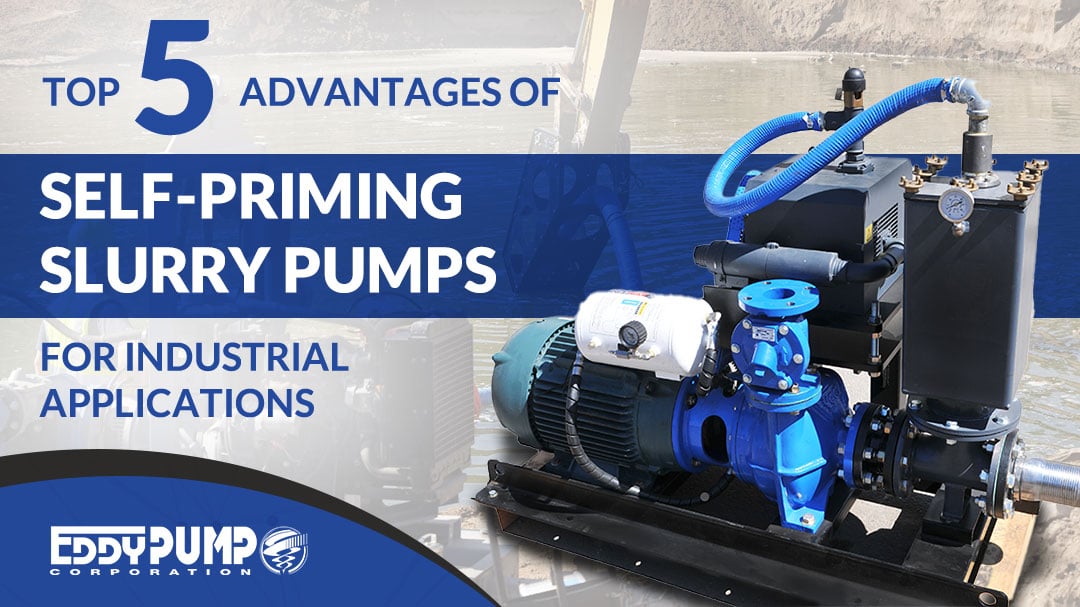
Self-priming slurry pumps have become indispensable in various industrial applications, offering unparalleled efficiency, reliability, and versatility. These pumps are specifically designed to handle abrasive slurries, viscous fluids, and solids-laden liquids, making them ideal for demanding environments where traditional pumps may struggle. Let us explore the top five advantages of self-priming slurry pumps and their significance in industrial settings.
1. Self-Priming Capability:
One of the primary advantages of self-priming slurry pumps is their ability to automatically prime and re-prime without needing external priming systems or manual intervention. This feature eliminates the tedious priming process and allows the pump to start pumping quickly and efficiently, even when the suction line is partially filled with air or gas. Self-priming capability reduces downtime, improves operational efficiency, and enhances overall reliability, especially in applications where continuous pumping is critical.
2. Handling of Abrasive and Viscous Materials:
Self-priming slurry pumps are specifically engineered to handle abrasive slurries, viscous fluids, and solids-laden liquids commonly encountered in industrial processes such as mining, construction, wastewater treatment, and chemical processing. These pumps feature robust construction, hardened wear parts, and advanced impeller designs that can withstand abrasive materials’ erosive and corrosive effects, ensuring long-lasting performance and minimal maintenance requirements.
3. Versatility and Flexibility:
Self-priming slurry pumps offer exceptional versatility and flexibility, allowing them to adapt to various operating conditions and applications. Whether pumping thick sludges, dewatering excavations, or transferring chemical slurries, these pumps can be customized with multiple impeller types, materials, and configurations to meet specific process requirements. Their compact design and portable nature make them suitable for temporary installations, remote sites, and mobile applications where space and accessibility are limited.
4. Reduced Installation and Maintenance Costs:
Compared to conventional pumps, self-priming slurry pumps offer significant cost savings in installation and maintenance. Their self-priming capabilities eliminate the need for expensive priming systems or additional equipment, streamlining the setup process and reducing installation time and costs. Furthermore, these pumps’ robust construction and wear-resistant components minimize downtime and repair expenses, resulting in lower overall lifecycle costs and improved return on investment for industrial operators.
5. Enhanced Safety and Environmental Compliance:
Self-priming slurry pumps are designed with safety and environmental considerations in mind. They feature sealed casings, leak-proof seals, and optional containment features to prevent spills, leaks, and emissions. By effectively containing and controlling hazardous materials, these pumps help industrial facilities comply with regulatory requirements, protect personnel and equipment from potential hazards, and minimize the risk of environmental contamination. Additionally, their self-contained operation reduces the need for manual intervention and exposure to hazardous substances, enhancing workplace safety and operator confidence.
Self-Priming Slurry Pumps in Various Industries
Self-priming slurry pumps find widespread usage across various industries due to their ability to handle abrasive materials, viscous fluids, and solids-laden liquids. Some of the key sectors where self-priming slurry pumps are most commonly used include:
- Mining and Mineral Processing: Self-priming slurry pumps are extensively used in the mining industry to transport ore, tailings, and mineral slurries. They play a critical role in dewatering operations, hydraulic mining, and processing facilities where the handling of abrasive materials is prevalent.
- Construction and Tunneling: Self-priming slurry pumps are employed in construction and tunneling projects to dewater excavations, tunnel boring, and manage groundwater seepage. These pumps are well-suited for handling slurries, mud, and sludge encountered during earthworks and underground construction.
- Wastewater Treatment: Municipal and industrial wastewater treatment plants and facilities rely on self-priming slurry pumps to convey sewage, sludge, and effluent streams. These pumps are essential for sludge transfer, digesters, and aeration systems, where solids and debris are familiar.
- Chemical Processing: Chemical processing plants utilize self-priming slurry pumps for handling corrosive chemicals, abrasive slurries, and toxic substances. These pumps are employed in chemical transfer, reactor feed, and filtration processes, where chemical corrosion and wear resistance are critical.
- Power Generation: Self-priming slurry pumps are used in power generation facilities for ash handling, flue gas desulfurization (FGD), and coal slurry transport. They are vital in conveying fly ash, bottom ash, and sludge generated from coal-fired power plants and other energy production facilities.
- Oil and Gas Industry: In the oil and gas sector, self-priming slurry pumps are utilized for drilling mud circulation, pipeline cleaning, and offshore platform operations. These pumps can handle drilling fluids, drill cuttings, and production waste streams encountered in upstream and downstream operations.
- Aggregate and Concrete Production: Aggregate quarries, sand and gravel plants, and concrete batching facilities rely on self-priming slurry pumps for transporting aggregates, cement slurries, and recycled materials. These pumps facilitate the production of concrete, asphalt, and construction materials by efficiently handling abrasive aggregates and cementitious mixtures.
- Dredging and Marine Applications: Self-priming slurry pumps are essential for dredging harbors, rivers, and coastal areas to maintain navigation channels, reclaim land, and perform environmental remediation. They remove sediment, sand, and marine debris from water bodies while withstanding harsh marine environments.
Conclusion:
Self-priming slurry pumps offer many advantages for industrial applications, including self-priming capability, handling of abrasive materials, versatility, cost savings, and safety compliance. By harnessing the power of these advanced pumping solutions, industrial operators can achieve efficient and reliable fluid handling, optimize process performance, and maintain a competitive edge in today’s demanding industrial landscape.
